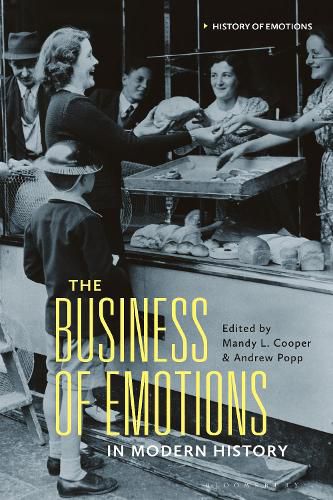Readings Newsletter
Become a Readings Member to make your shopping experience even easier.
Sign in or sign up for free!
You’re not far away from qualifying for FREE standard shipping within Australia
You’ve qualified for FREE standard shipping within Australia
The cart is loading…






The Business of Emotions in Modern History shows how businesses, from individual entrepreneurs to family firms and massive corporations, have relied on, leveraged, generated and been shaped by emotions for centuries. With a broad temporal and global coverage, ranging from the early modern era to the present day in Africa, Asia, Europe and North America, the essays in this volume highlight the rich potential for studying emotions and business in tandem.
In exploring how emotions and emotional situations affect business, and in turn how businesses affect the emotional lives of individuals and communities, this book allows us to recognise the emotional structures behind business decisions and relationships, and how to question them. From emotional labour in family firms, to affective corporate paternalism and the role of specific emotions such as trust, fear, anxiety love and nostalgia in creating economic connections, this book opens a rich new avenue of research for both the history of emotions and business history.
$9.00 standard shipping within Australia
FREE standard shipping within Australia for orders over $100.00
Express & International shipping calculated at checkout
The Business of Emotions in Modern History shows how businesses, from individual entrepreneurs to family firms and massive corporations, have relied on, leveraged, generated and been shaped by emotions for centuries. With a broad temporal and global coverage, ranging from the early modern era to the present day in Africa, Asia, Europe and North America, the essays in this volume highlight the rich potential for studying emotions and business in tandem.
In exploring how emotions and emotional situations affect business, and in turn how businesses affect the emotional lives of individuals and communities, this book allows us to recognise the emotional structures behind business decisions and relationships, and how to question them. From emotional labour in family firms, to affective corporate paternalism and the role of specific emotions such as trust, fear, anxiety love and nostalgia in creating economic connections, this book opens a rich new avenue of research for both the history of emotions and business history.